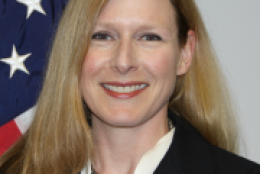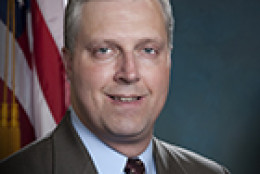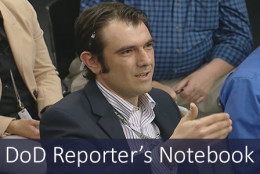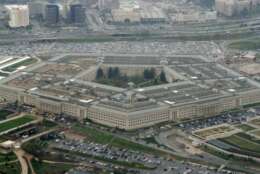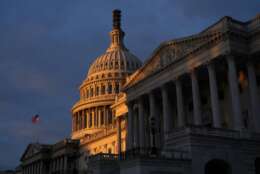Defense
-
The House of Representatives will vote this week on the fiscal 2016 National Defense Authorization Act. House Armed Services Committee Ranking Member Adam Smith told Bloomberg the House and Senate conferees have a deal, so the vote could come before Friday. That bill includes a provision that would give service chiefs more oversight over major acquisitions. Frank Kendall, the Undersecretary of Defense for Acquisition, Technology and Logistics recently gave some oversight of acquisitions to the secretaries of the service branches. But giving away that oversight is a bad idea no matter who OSD gives it to, Charles Tiefer, professor of contract law at the University of Baltimore School of Law and a former commissioner on the Commission on Wartime Contracting in Iraq and Afghanistan, told In Depth with Francis Rose. He wrote on Forbes about why he thinks the NDAA's reform is a bad idea.
September 29, 2015 -
The Air Force told Congress in a new report that the Distributed Common Ground/Surface System Analysis and Reporting Team (DART) still is doing its assigned job, despite lawmaker concerns.
September 29, 2015 -
The Boots-to-Business program has the goal of keeping service members on their feet once they leave the military. Jointly operated by the Defense Department and the Small Business Administration, Boots-to-Business has had a few changes. Barbara Carson, the acting associate administrator in the Office of Veteran Business Development at the SBA, joins the Federal Drive with Tom Temin with an update.
September 28, 2015 -
The small businesses that serve the Department of Defense may benefit from a program to share the Pentagon's cybersecurity lessons-learned. DoD's Office of Small Business Programs has some opportunities for companies to learn from the department's experience, but there are more ways the agency could share its work. Joseph Kirschbaum, director of Defense Capabilities and Management Issues at the Government Accountability Office, shares his insight on In Depth with Francis Rose.
September 28, 2015 -
In this week's "Inside the Reporter's Notebook," Rep. Will Hurd (R-Texas) held a field hearing in Austin, Texas last week to better understand how agencies are implementing cloud computing.
September 28, 2015 -
GSA made an award to Booz Allen Hamilton under the OASIS multiple award contract on behalf of the Defense Department for a host of global threat mitigation services.
September 28, 2015 -
In this week's "Inside the DoD Reporter's Notebook," the Army hopes the project will help answer some of its lingering questions the potential savings of transitioning to commercial cloud offerings.
September 28, 2015 The Defense Department has greenlighted three dozen commercial cloud offerings since it first overhauled its commercial cloud security processes in January.
September 28, 2015-
The Army hopes the project will help answer some of its lingering questions about the potential savings of transitioning to commercial cloud offerings.
September 28, 2015 Vice Chief of Naval Operations Adm. Michelle Howard said cyber weapons are following a similar trajectory as nuclear weapons and for now need top command and control authorities to be used.
September 25, 2015-
When the military needs to send covert messages over its wireless networks, it cloaks the transmissions in virtual "noise" or chatter. This method hides secret communications effectively, but also consumes a lot of bandwidth, which limits message size and speed. Syed Ali Jafar is a research professor at the University of California Irvine. He's been working on a way to make military wireless networks larger, faster and able to accommodate more users, in conjunction with the Office of Naval Research.
September 25, 2015 -
The Defense Information Systems Agency’s cyber defense headquarters says it's been involved in seven named operations since its establishment in January. Now the Joint Force DODIN is taking some of the operational pressure off of U.S. Cyber Command. Federal News Radio reporter Scott Maucione tells Francis Rose more about DODIN and why its involvement in seven operations matters.
September 25, 2015 -
Deputy Secretary of Defense Robert Work says the Pentagon is making plans in case Congress cannot reach a budget deal or continuing resolution before Sept. 30.
September 25, 2015 -
National Security Agency Director Michael Rogers told lawmakers that NSA needs to be restructured to deal with an ever-changing threat landscape.
September 25, 2015 -
If you work or ever worked for the government, if you retired from Uncle Sam, if you applied for but didn't take a federal job, odds are somebody knows a lot of your secrets. Who did it, what exactly did they do, when did it happen, where, and often most elusively, why?
September 25, 2015



